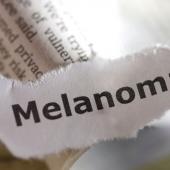This episode of Curbside Consult with Dr Lise Alschuler explores how physicians can help patients with breast cancer better prepare for standard therapeutic interventions like breast conserving surgery, mastectomy and radiation therapy.
Dr Alschuler discusses how to prepare patients to maximize the benefits of their treatment. She also shares advice on having honest and open conversations with patients about their expectations and outcomes related to these interventions. Finally, she offers insights into how to help patients develop a holistic plan for their future care.
Key Take-Aways
Managing Anxiety
A key aspect of easing patients' anxiety about having surgery is to give them an opportunity to express their concerns. This can be done through a combination of education, reassurance, and emotional support. It’s important to provide patients with the information they need to understand their procedure and the risks and benefits associated with it. Additionally, it’s also important to listen to their questions and address any of their worries.
Preparing For Surgery
The most important thing to prepare yourself for surgery is to be well-hydrated, well-rested, well-fed, and to have mindfulness or stress management practices in place. Recommend self-guided visualizations before surgery.
When a woman has a mastectomy or a lumpectomy, her arm is placed above her head on the table for quite some time. Instruct the patient to ask their nurse, when the surgery is done, to bring their arm down very slowly and let it rest. This has been shown to reduce the risk of frozen shoulder syndrome, a known complication of breast surgery.
As a potential treatment option, there has been promise in the use of preoperative ketorolac to reduce the inflammatory response after surgical resection of tumors, potentially reducing the risk of distant metastatic tumour spread.
Preparing For Radiation
With radiation therapy, we're concerned about dermatitis, fatigue, and white blood cell count. Radiation works better when the tissue is well oxygenated, so it is recommended that the patient do a brisk walk for fifteen minutes before treatment.
Regarding dermatitis, calendula ointment should be applied to the breast area and any part of the skin that was exposed to the radiation immediately after each treatment. Then in the evening apply Emu Oil or Shea Nut Butter. Medicinal mushrooms can help women feel better during radiation and have less of an impact on their white blood cell count.
In China, medicinal mushrooms are used to strengthen the immune system of cancer patients who receive chemotherapy or radiation therapy. They complement chemotherapy and radiation therapy by countering the side-effects of cancer, such as nausea, bone marrow suppression, anemia, and lowered resistance.
It’s important to dose correctly. The magic dose is three grams a day. It’s recommended to go with 1.5 grams in three capsules, typically twice a day.
Key Quote
“I think that the most important thing is that people are given a chance to express their anxiety around surgery and to really let them talk through that and to give them some strategies to mitigate the anxieties so they can go into it feeling more relaxed and at peace.
Fundamentally, the most important way to prepare yourself for surgery is just the basics of health: to be well-hydrated, well-rested, well-fed, and to have some good mindfulness or stress management practices in place.” Dr Lise Alschuler, ND FABNO
==
The opinions expressed in this Nutramedica program are those of the guests and contributors. They do not necessarily reflect the opinions of Nutritional Fundamentals For Health Inc.
This video is intended for licensed or registered health professionals and students of health professions only. These statements have not been evaluated by the Food and Drug Administration. Information contained in these programs are not intended to diagnose, treat, cure or prevent any disease.



